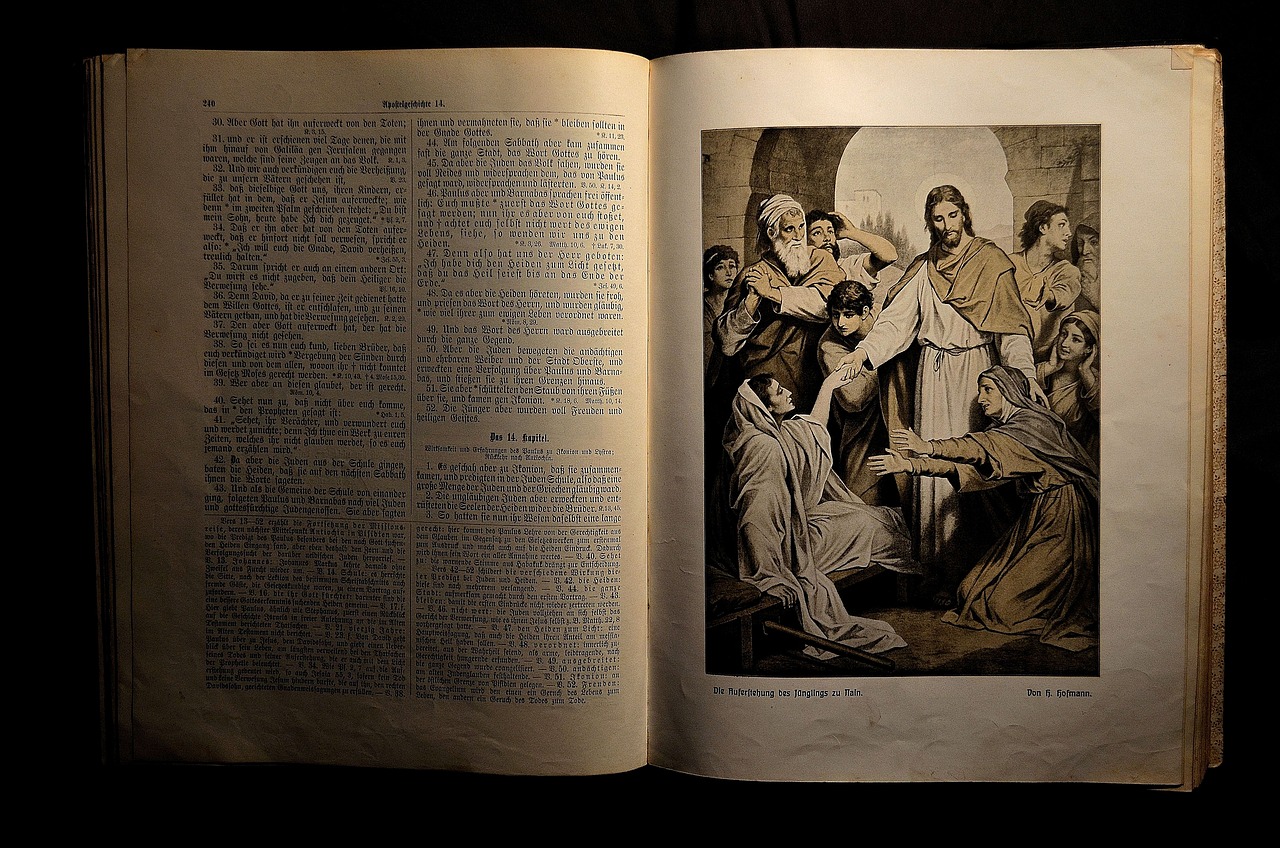Ezekiel 3: A Feast of Words, A Burden of Souls – Deconstructing Ezekiel’s Prophetic Commission
Chapter 3 of Ezekiel marks a pivotal turning point in the prophet’s journey. No longer a passive observer or silent recipient of visions, Ezekiel is thrust into the role of an active messenger, called by God to “eat his words” and speak them to a rebellious house. Let’s delve into this dynamic chapter, unearthing its layers of meaning and exploring its potential connections to the life and message of Jesus.
Themes:
Divine Commissioning: Word Eater, Word Bearer: Ezekiel’s encounter with the divine book isn’t simply about receiving information; it’s about internalizing it. By ingesting the scroll, he becomes fully immersed in God’s message, preparing him to become its conduit to the world. This theme resonates with the notion of embodying the message we want to share, not just transmitting it intellectually.
Facing a Hard-Headed Audience: God is frank: Israel is a “rebellious house, stubborn and obstinate.” Ezekiel’s mission involves confronting their disobedience and delivering challenging truths. This resonates with the prophetic calling to speak truth to power, even when it’s met with resistance or rejection.
Resilience in the Face of Adversity: God forewarns Ezekiel of resistance and persecution. He’s urged not to be intimidated by their “thorny words” or “stony faces.” This prepares him for the emotional and mental fortitude needed to persevere in his prophetic mission. This theme speaks to the resilience required to stay true to our convictions in the face of opposition.
Two Responsibilities: Watchman and Shepherd: Ezekiel occupies a dual role – a watchman warning of danger and a shepherd guiding his flock. This highlights the multifaceted nature of prophetic ministry, emphasizing both the need for clarity and compassion in delivering God’s word.
Jesus-Centered Connections:
Echoes of Christ’s Commissioning: Jesus, too, received his mission directly from the Father, declaring, “I have come with fire and sword” (Matthew 10:34). He confronted religious hypocrisy and societal injustices, fulfilling the role of a bold, truth-telling prophet. Ezekiel’s experience offers glimpses into the challenges and responsibilities Jesus embraced in his earthly ministry.
Internalizing Divine Truth: Jesus declared, “I and the Father are one” (John 10:30). This profound unity embodies the concept of fully aligning oneself with God’s will and message. Just as Ezekiel “ate” the scroll, Jesus embodied the truth he proclaimed, living a life perfectly aligned with his Father’s purpose.
Compassion for the Lost: While delivering stern warnings, Jesus also expressed deep compassion for the lost and marginalized. He offered mercy and healing, fulfilling the role of a shepherd seeking out his flock. Ezekiel’s dual calling as watchman and shepherd resonates with this Christ-like blend of truth-telling and compassion.
Facing Rejection and Persecution: Jesus, too, encountered resistance and rejection from religious authorities and a hardened populace. His unwavering commitment to his mission despite the harsh realities mirrors Ezekiel’s call to persevere in the face of adversity.
Further Exploration:
Comparing and contrasting Ezekiel’s prophetic role with other biblical figures like Isaiah, Jeremiah, and John the Baptist.
Reflecting on personal experiences where we have felt called to speak out against injustice or share difficult truths, and the challenges we encountered.
Examining how the theme of resilience in the face of persecution applies to contemporary challenges of advocating for social change or expressing unpopular opinions.
Considering how we can personally internalize and embody the values or messages we advocate for in our personal and professional lives.
#Ezekiel3, #DivineCommissioning, #WordEater, #WordBearer, #FacingHardHeadedAudience, #Resilience, #WatchmanAndShepherd, #TwoResponsibilities, #JesusCenteredConnections, #EchoesOfChristsCommissioning, #InternalizingDivineTruth, #CompassionForTheLost, #FacingRejectionAndPersecution, #FurtherExploration, #BeyondTheBook
Beyond the Book:
Ezekiel 3, with its rich tapestry of themes and potential allusions to Jesus’ ministry, offers valuable insights into the calling of a prophet, the challenges of truth-telling, and the importance of unwavering commitment in the face of adversity. It reminds us that true prophetic ministry doesn’t exist in a vacuum; it involves deep internalization of the message, courageous confrontation of wrongdoing, and compassionate guidance for those who have strayed. By stepping into Ezekiel’s shoes and contemplating the echoes of Jesus within the narrative, we may find ourselves called to embrace our own voices, internalize the values we want to share, and stand firm in the face of opposition, ultimately offering light and hope to a world in need.
Remember, this analysis provides just a starting point for your own exploration of Ezekiel 3. By delving deeper into the details, engaging in personal reflection, and applying its lessons to your own life, you can unlock the enduring wisdom and transformative power of this ancient text.



